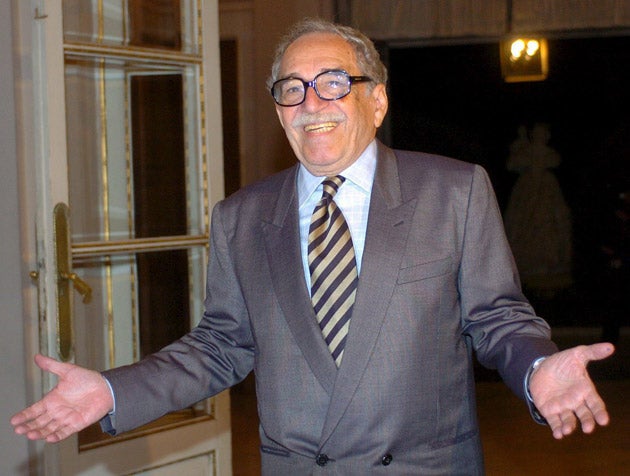Boyd Tonkin: Hard times ahead in the house of fiction
The Week In Books

Your support helps us to tell the story
From reproductive rights to climate change to Big Tech, The Independent is on the ground when the story is developing. Whether it's investigating the financials of Elon Musk's pro-Trump PAC or producing our latest documentary, 'The A Word', which shines a light on the American women fighting for reproductive rights, we know how important it is to parse out the facts from the messaging.
At such a critical moment in US history, we need reporters on the ground. Your donation allows us to keep sending journalists to speak to both sides of the story.
The Independent is trusted by Americans across the entire political spectrum. And unlike many other quality news outlets, we choose not to lock Americans out of our reporting and analysis with paywalls. We believe quality journalism should be available to everyone, paid for by those who can afford it.
Your support makes all the difference.When the market fails them, where do authors go? We will soon find out. Piquantly, next month every lover of good books and their makers will toast the tercentenary of Samuel Johnson's birth. That proud hack found in the peaks and troughs of the literary trade more dignity and honour than in dependence on the goodwill of a patron, skewered in his Dictionary as "a wretch who supports with insolence, and is paid with flattery". The marketplace replaced the marble hall as habitat of choice.
Over the past year, however, the collapse in advances paid to and earnings expected from serious authors has made many far-from-obscure names feel the chill of full-time writing in a sharp cyclical slump - made worse by the inroads of new technology. Chris Anderson entitled his book about the digital-era raid on fees, rates and copyrights Free. Looking at the downward push on author's incomes imposed by electronic platforms, a literary version of his thesis would need no such sensational title. Just call it "Cheap".
Most enduring books, of course, have never paid their way. From unearned income (Henry James, Marcel Proust) and scrounging and sponsorship (James Joyce, DH Lawrence) to nine-to-five drudgery (Franz Kafka, Fernando Pessoa), the history of breakthroughs in modern writing is one long, scrappy fight for the time and space to write. With major 20th-century poets, never under the illusion that the market could sustain them, career paths show an odd fondness for financial services – from TS Eliot at Lloyd's Bank and Wallace Stevens at the Hartford Accident and Indemnity Company to Roy Fuller, with the Woolwich as a solicitor for three decades. As for modern doctor-writers, from Chekhov and Maugham to newcomers such as Jed Mercurio, Abraham Verghese and Suhayl Saadi, their sheer number and quality makes medicine the clear professional prescription for any literary wannabe unwilling to trust their fortunes to such a roller-coaster business.
In the past, most authors with ambition to do more than hammer out genre potboilers knew that writing would not pay the bills. In UK fiction, only the freak boom conditions that began in the early 1980s – smarter marketing and retailing, a swelling graduate audience, a sudden jolt of glamour, newly dynamic agents, competition for prestige names among predatory conglomerates – convinced more than a handful of "literary" novelists that their gift might earn them a long-term livelihood. Even in the fattest years, far fewer writers pulled off that trick than outsiders thought. For many, the old standbys of teaching, journalism and family support remained essential.
Now, a radical thinning of the ranks of long-haul professional writers looks unavoidable. Even if an upswing comes along, the drop in incomes that digitised reading brings means that, for many, authorship will slip from a semi-rational career option to a passionate hobby. Novelists outside the bestseller lists may have to work as poets long have, stitching together a liveable portfolio from gigs, teaching, grants, and sporadic literary jobs. Many well-known writers of the past 30 years also tended to assume that a comfy university position lay in store when sales fell away. No longer. The creative-writing vogue may well soon pass its peak, and British teaching posts demand hard work.
But dreams, not prudence, claim the last word. Landmark works of fiction will carry on emerging from driven newcomers with CVs of every stripe, from ad copywriter (both Joseph Heller and Salman Rushdie) to publisher's editor (Toni Morrison) and stonemason-sculptor (Günter Grass). Then there was the journalist who chucked it all in and almost starved his family in order to write the novel that drove him to this folly: Gabriel García Márquez. The result was One Hundred Years of Solitude. Whatever the economic forecasts, his ever-hopeful heirs will still gamble on their future in the literary sun.
P.S.In Britain at least, the lives of Politicians' Wives will never exert the same pulling power as the Premier League version. Discretion dampens the spouses' stories that we really want to hear, and Cherie Blair's Speaking for Myself failed to set the Mersey or the Thames on fire. Wisely, Norma Major published books about houses (Chequers) and divas (Joan Sutherland) instead. Pick of the recent bunch must be Edna Healey's shrewd and sardonic Part of the Pattern. Undaunted by the rocky record of the genre, HarperCollins has paid serious money for a memoir by Pauline Prescott (left). But the firm's hype drools in cliché-sodden fashion about her "true Northern grit". Spare us. Glimpses of Pauline on TV have revealed a complex and fascinating human being. In the book we want to meet her, not some stereotypical marketing pitch.
Join our commenting forum
Join thought-provoking conversations, follow other Independent readers and see their replies
Comments